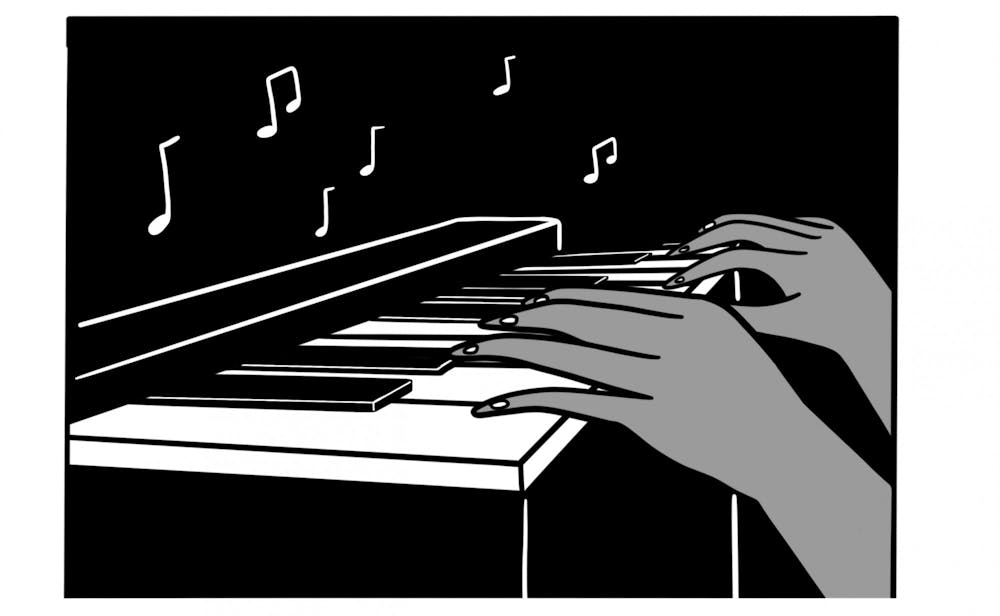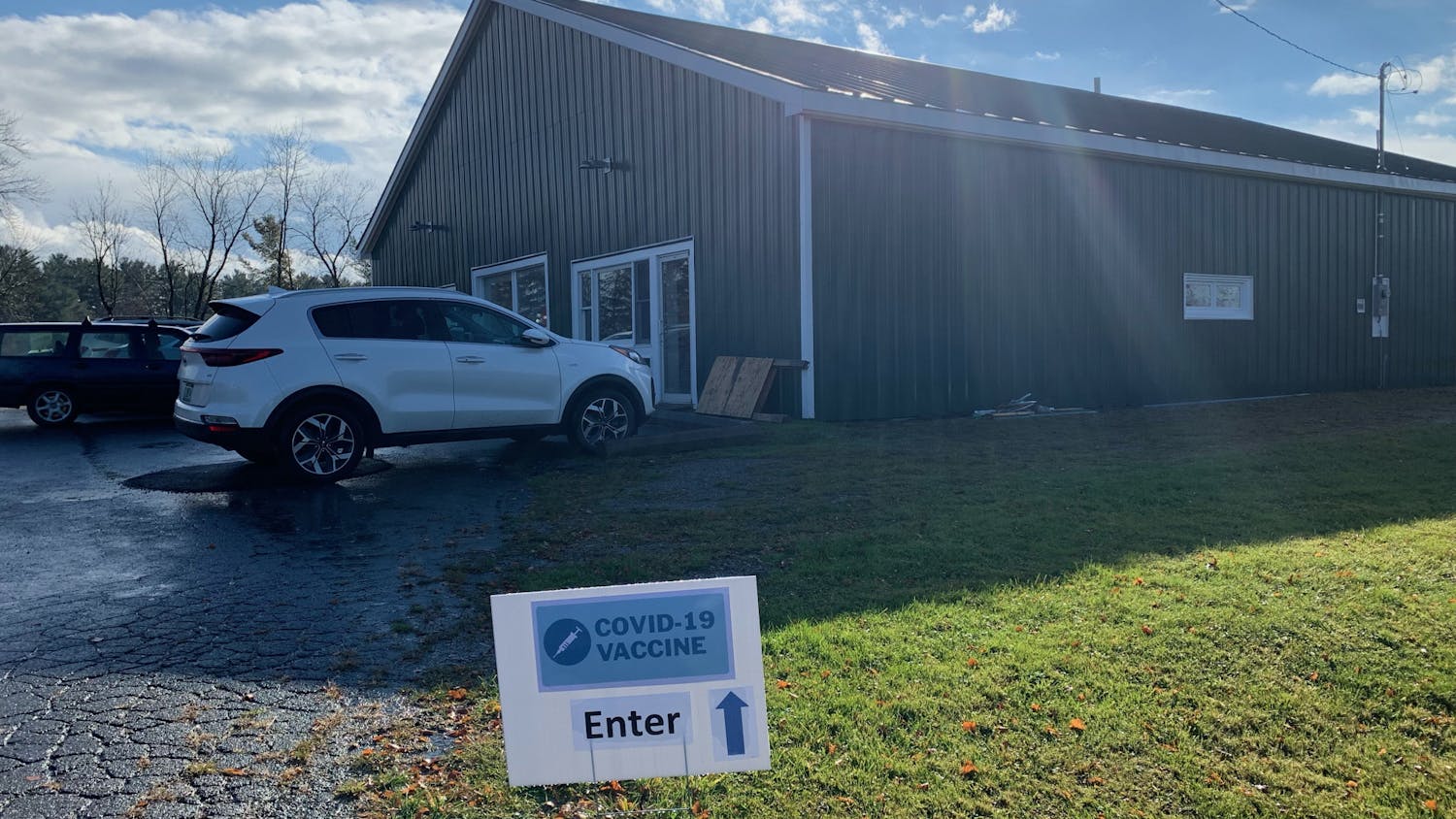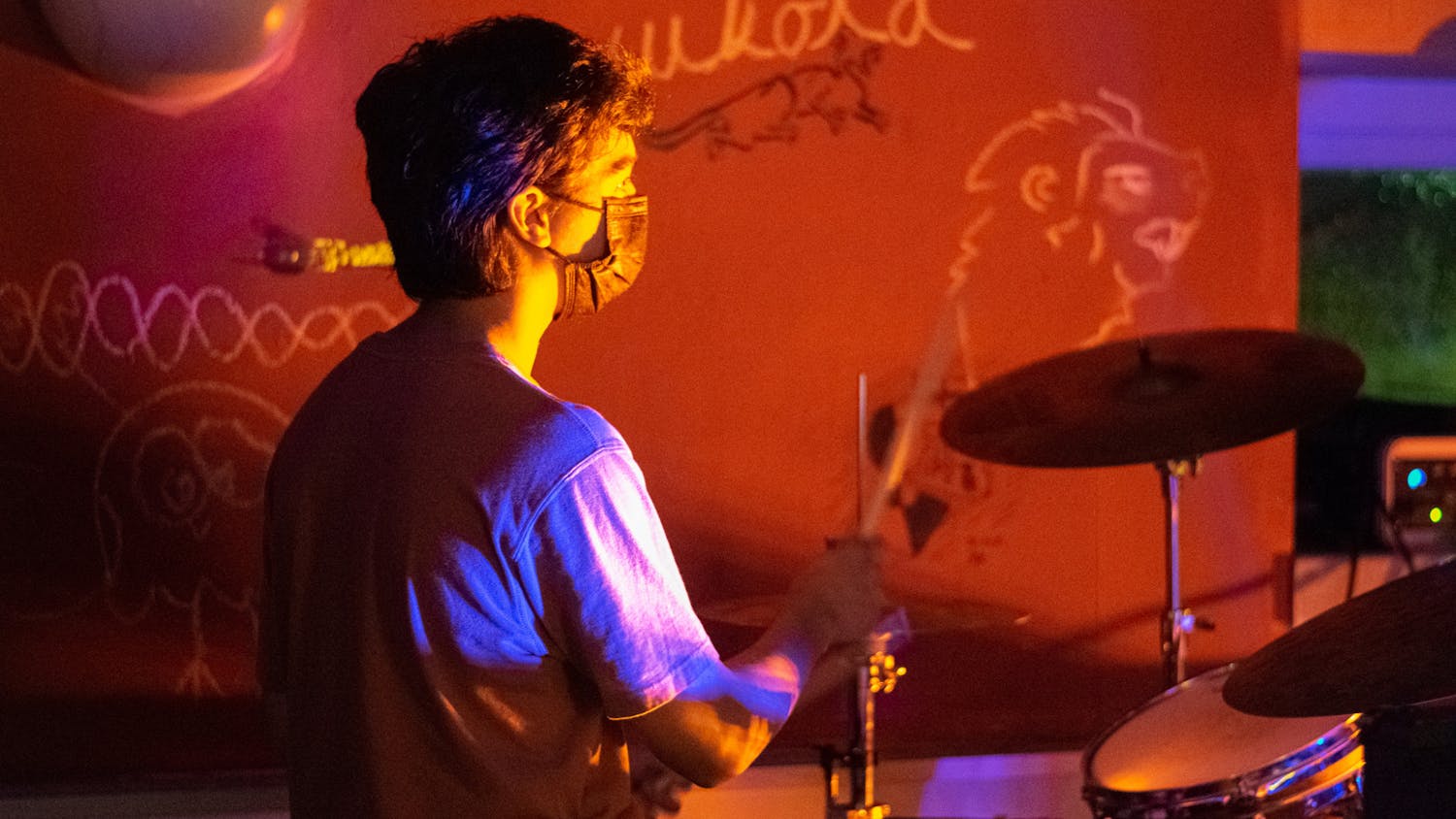From its roots in down-home New Orleans bands, Harlem swing and bebop, jazz is constantly evolving. It pays homage to its early icons and bases its musical substance on their characteristics, and yet it takes on new forms that react to the world beyond the practice room. The Middlebury College community had the pleasure of witnessing this development as Matthew Whitaker, one of jazz’s up-and-coming prophets, performed in Robinson Hall at the Mahaney Arts Center on Nov. 6.
The phenomenon of the blind pianist is not unfamiliar in the jazz world — in fact, it is a vital archetype in the tradition. Art Tatum, one of the most notable jazz legends who dealt with blindness from an early age (and whom Whitaker, who has been blind since birth, cites as one of his many influences), was one of the first musicians to demonstrate musical virtuosity while blind. His playing was notable for its trademark lightspeed flourishes up and down the piano, which stunned crowds at bars and nightclubs across the country. Vladimir Horowitz, the premier classical pianist of the early twentieth century, is often credited with saying that he was lucky Tatum wasn’t one of his classical rivals. “[If] Tatum had taken up classical piano, I’d quit my job the next day,” said Horowitz. Decades after Tatum, blind musicians Ray Charles and Stevie Wonder rocked the airwaves with soulful vocal belts and bluesy licks on the keys, which they inherited from blues and gospel traditions that rang through the air during their childhoods.
Whitaker, although only 20 years old — the average age of a Middlebury student — has already established himself in this renowned lineage of virtuosos. His music draws from his predecessors, as well as from more contemporary figures, but he still achieves a distinctive sound that originates from his own musings and thought patterns. Like Tatum, his mechanical dexterity and melodic phrasing is astonishing, and like Charles and Wonder, his vigorous soul levitates his audience.
Whitaker’s Saturday performance consisted of popular songs, Latin-fusion standards, previous compositions and songs from his new album, “Connections.”
If the measure of any jazz musician is their fluency in the American songbook and the authenticity of their own creative output to it, then Whitaker far surpasses the standard. Many of his selections, including “Spain” by Chick Corea, “Blue Rondo à la Turk” by Dave Brubeck, “What’s Goin’ On?” by Marvin Gaye and “September” By Earth, Wind, & Fire (the last two which are soul/R&B tunes), he colored with experimental harmonies and rhythmic structures that add to the original versions. For example, Whitaker took “Spain,” whose light and transcendent sound is widely recognized by jazzheads, and stretched out its chorus in sparse and jagged half time, an unusual departure from the teeming Latin energy with which Chick Corea played it.
Whitaker also chose to pay his respects to Corea and organist Dr. Lonnie Smith, two jazz giants whose recent deaths had an impact on him. Smith, who worked closely with Whitaker to help him develop his style, was one of his most significant idols; on stage, he let us witness how powerful their bond was by playing Smith’s gospel hymn “Pilgrimage.” He started out soft and patient, but with each steady step of the tune, he emerged into impassioned rejoice, marked by Stevie Wonder-esque key shifts that lifted the audience into pure glee.
Whitaker was not a sole performer revelling in the spotlight, but was a determined communicator with the rest of his quartet. It was astounding how easily the other members of Whitaker’s quartet picked up on whatever he was playing. During moments of improvisation, drummer John Steele studied the way Whitaker moved his body and responded accordingly. When the audience was drawn in, Whitaker would yell in excitement: a “woo!” when things were flying into a fluid soundscape, or a “ungh!” when his bassist, Karim Hutton, laid some serious funk. The band knew exactly how to complement and bring the best out of him, and in response he transmitted them some energy to rearrange and play around with.
After the show, the Whitaker Quartet stood outside of Robinson Hall, taking pictures with anyone who asked. “[‘Connections’] is really all about this idea of community, of musicians and family and everyone [...] coming back together after being separated for so long,” Whitaker said about his new album. It’s clear that Whitaker is ready to launch into a world where everyone has the capacity to love and share their stories through music. At every step along the way, Whitaker will bring with him a musical language that has been refined over decades by those who came before him, playing with an electricity native to no soul but his own.




